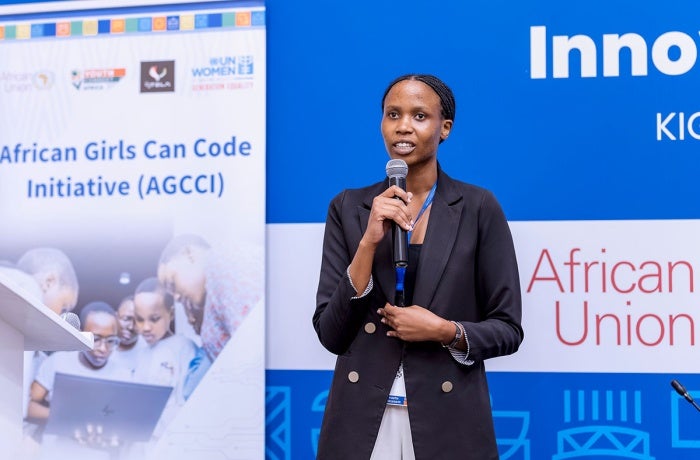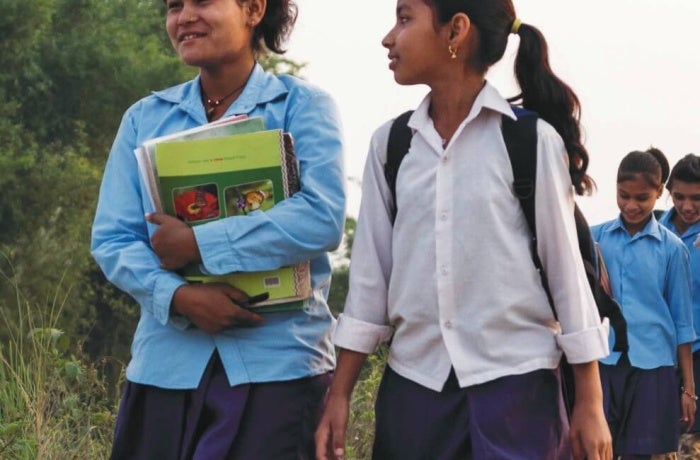Statement: For HIV progress – listen, respect, and respond to young women and girls
Statement by UN Under-Secretary-General and UN Women Executive Director Sima Bahous for World AIDS Day, 1 December 2022
Every two minutes, a young woman or adolescent girl is infected with HIV. At this pace, the world will not meet the target to reduce the number of new HIV infections among this population group to below 50,000 by 2025. We must urgently take a different approach.
This World AIDS Day, I call upon all stakeholders to accelerate their work towards meeting both Sustainable Development Goal (SDG) 5 on gender equality and SDG 3 on health and well-being. The current rates of HIV infections among young women demonstrates how closely these two goals are are interlinked, and how pressing it is to achieve both. I further urge stakeholders to deliver on the commitments made to Generation Equality, specifically those made to the Action Coalition on Bodily Autonomy and Sexual and Reproductive Health and Rights, and to invest in feminist and youth-led HIV movements.
Several factors contribute to the lack of progress in reducing HIV infections, including continued gender-based violence, and cultural norms that constrain women’s and girls’ bodily autonomy, full and equal engagement in their economies and societies, and access to vital services. Globally, more than one in every ten women aged 15-49 were subjected to sexual and/or physical violence by an intimate partner in the previous year, increasing their chances of acquiring HIV by 50 per cent. Women and girls shoulder over 512 billion hours of unpaid care work, including care for family and community members living with HIV. At the current rate, it may take another 286 years to remove discriminatory laws, including those that deny women’s sexual and reproductive health and rights and bodily autonomy. Young women affected by HIV and AIDS struggle to have their voice and agency recognized and their needs and rights known every day.
On the International Day of the Girl Child this year, I had the honour of convening young emerging women leaders from across 15 countries in sub-Saharan Africa and hearing their demands and aspirations. Their message was clear: remove gender-related barriers to HIV services, guarantee young women’s sexual and reproductive health and rights, eliminate gender-based violence, implement the Education Plus joint initiative to promote secondary education for all girls to prevent HIV, amplify women’s leadership and voice, and increase financing for gender equality in the HIV response. Resolute and determined, young women and girls demonstrate every day what leadership is and the lasting impact they can have.
Girls and young women have the passion, energies, and capabilities needed to meet global goals to reduce HIV infection rates. To influence decisions that affect their lives, young women’s rights to effective participation should be guaranteed and institutionalized.
Today, in keeping with the theme of World AIDS Day, I call on all to EQUALIZE by listening, respecting, and responding to young women and girls. We need more young women steering us towards the end of inequalities and AIDS by 2030. Let us accelerate progress on inequalities together, for everyone in the societies that we serve, and with women and girls at the centre.









